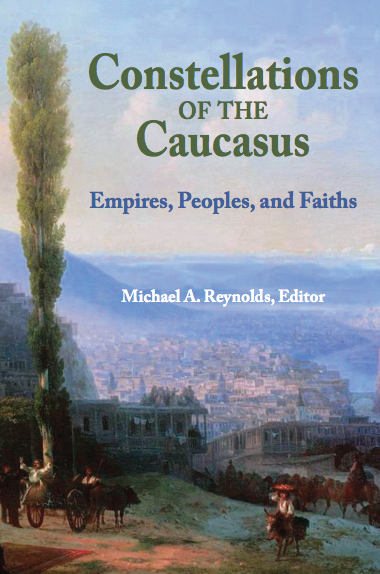The Caucasus has fascinated humanity for millennia. A natural crossroads a nd a perpetual borderland, the region has often been described as the meeting place of East and West, Europe and Asia, Christendom and Islam. The Caucasus Mountains are home to a bewildering diversity of languages and ethnicities. In the imaginations of multiple great cultures and civilizations—Greek, Slavic, Arabic, Turkic, and Persian, to name just a few—the region has served as a realm of legend and myth, of wonderment and exotica. Yet at the same time, the region can also serve as a mirror to the outside, a site where one can trace the unfolding of processes that have shaped the broader world.
nd a perpetual borderland, the region has often been described as the meeting place of East and West, Europe and Asia, Christendom and Islam. The Caucasus Mountains are home to a bewildering diversity of languages and ethnicities. In the imaginations of multiple great cultures and civilizations—Greek, Slavic, Arabic, Turkic, and Persian, to name just a few—the region has served as a realm of legend and myth, of wonderment and exotica. Yet at the same time, the region can also serve as a mirror to the outside, a site where one can trace the unfolding of processes that have shaped the broader world.
In this volume, six leading scholars of the Caucasus from around the globe explore overlapping constellations of personal relationships, imperial institutions, economic processes, and religions that have linked the peoples of the Caucasus with each other and with the outside world. The contributors reveal the ways in which these ties have transformed the Caucasus and the world around it. Among the subjects they address are religious pluralism, imperial rule, and secularism; slavery, diaspora, and belonging; empire and the creation of ethno-national identities; and rhetoric, politics, and the spread of Salafi Islam in the 21st century.
